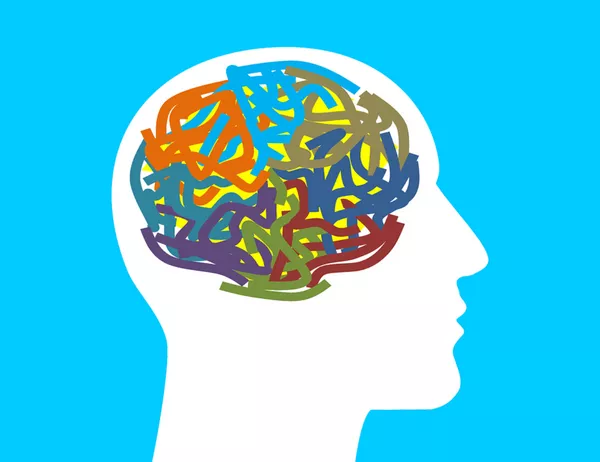In the realm of mental health, the coexistence of depression and anxiety is a common phenomenon that impacts millions of individuals worldwide. The intricate relationship between these two conditions has garnered significant attention from researchers, clinicians, and individuals seeking to understand their experiences. This article delves into the complex link between depression and anxiety, examining their shared features, distinct characteristics, potential causes, and treatment strategies.
Defining Depression and Anxiety
1. Depression: The Weight of Persistent Sadness
Depression, often referred to as major depressive disorder, is characterized by persistent feelings of sadness, hopelessness, and a lack of interest or pleasure in once-enjoyable activities. It can also manifest in physical symptoms such as changes in sleep and appetite.
2. Anxiety: The Overwhelming Sense of Fear
Anxiety disorders encompass a range of conditions, including generalized anxiety disorder, panic disorder, and social anxiety disorder. They involve excessive worry, fear, and apprehension that can lead to physical symptoms like racing heart, trembling, and restlessness.
Overlapping Symptoms and Shared Features
1. Emotional Overlap
Both depression and anxiety can cause emotional distress, leading to symptoms like irritability, difficulty concentrating, and decreased self-esteem. The overlap in emotional symptoms can make it challenging to differentiate between the two conditions.
2. Cognitive Patterns
Negative thought patterns, such as rumination and excessive worry, are common features of both depression and anxiety. These cognitive patterns contribute to the cycle of distress experienced by individuals with these conditions.
3. Physical Manifestations
Physical symptoms like fatigue, sleep disturbances, muscle tension, and digestive issues are prevalent in both depression and anxiety. These symptoms further blur the lines between the two disorders.
Comorbidity: The Coexistence of Depression and Anxiety
1. High Rates of Coexistence
Research has consistently shown that depression and anxiety frequently coexist. The presence of one condition increases the likelihood of developing the other, creating a complex web of emotional and psychological experiences.
2. Dual Diagnosis Challenges
The coexistence of depression and anxiety can complicate diagnosis and treatment. Individuals may struggle to identify the primary source of their distress, leading to potential challenges in finding effective treatment approaches.
Underlying Causes and Mechanisms
1. Neurochemical Factors
Both depression and anxiety involve disruptions in neurotransmitter systems, such as serotonin, dopamine, and norepinephrine. These imbalances contribute to mood dysregulation and heightened stress responses.
2. Genetic Predisposition
Family history plays a role in the development of both conditions. Genetic factors can influence an individual’s susceptibility to depression, anxiety, or the coexistence of both.
3. Stress and Trauma
Experiencing significant life stressors or traumatic events can increase the risk of developing depression, anxiety, or both. Trauma can also exacerbate existing symptoms and contribute to their coexistence.
Treatment Approaches
1. Therapy as a Foundation
Cognitive-behavioral therapy (CBT) is often utilized to address both depression and anxiety. It helps individuals identify and modify negative thought patterns and develop coping strategies.
2. Medication Options
Antidepressant medications, such as selective serotonin reuptake inhibitors (SSRIs), are commonly prescribed to manage symptoms of both conditions. These medications can help regulate neurotransmitter imbalances.
3. Integrated Approaches
Treating coexisting depression and anxiety may require integrated approaches that address the unique challenges posed by each condition. Therapists and medical professionals work collaboratively to tailor treatment plans to individual needs.
Self-Care and Lifestyle Changes
1. Exercise and Physical Activity
Engaging in regular exercise has been shown to have positive effects on both depression and anxiety. Physical activity releases endorphins, which can improve mood and alleviate symptoms.
2. Mindfulness and Relaxation Techniques
Practicing mindfulness, meditation, and relaxation techniques can help individuals manage symptoms by reducing stress and promoting a sense of calm.
Seeking Professional Help
1. Importance of Professional Guidance
If you or someone you know is experiencing symptoms of depression and anxiety, seeking professional help is crucial. Mental health professionals can provide accurate diagnoses, develop tailored treatment plans, and offer guidance throughout the recovery process.
2. Building a Support Network
Building a strong support network that includes friends, family, and mental health professionals can provide individuals with a safe space to express their feelings and seek assistance.
Conclusion
In conclusion, the link between depression and anxiety is intricate and multifaceted, encompassing shared symptoms, underlying causes, and complex treatment considerations. The coexistence of these conditions underscores the need for a comprehensive approach that addresses the unique challenges posed by each. Whether through therapy, medication, lifestyle changes, or a combination of these, individuals can find relief and regain control over their mental well-being. By recognizing the interconnectedness of depression and anxiety and seeking appropriate support, individuals can embark on a journey toward improved mental health and a brighter future.


